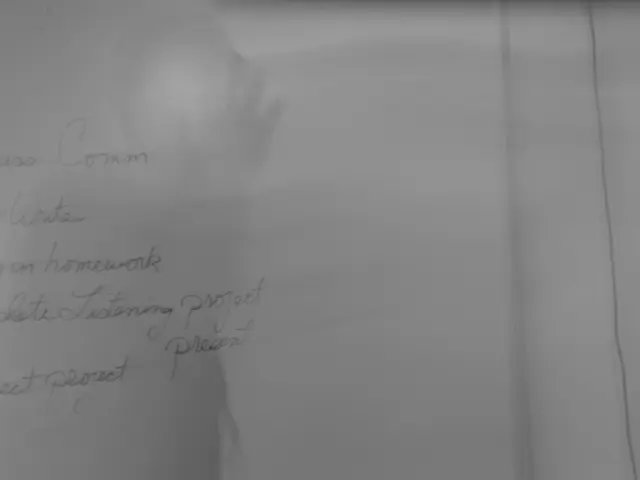The Indomitable Spirit of Margot Friedlaender: A Holocaust Survivor's Urgent Message
Message of Resilience and Survival Immaculately Preserved by Margot Friedländer
In the brittle twilight of her life, Margot Friedlaender, a Holocaust survivor, stood tall and unbowed. Even at over a century old, this petite woman enthralled audiences in classrooms, at memorial events, imploring her story with kindness, patience, and determination. She recounted the harrowing tale of her family, snuffed out by the Nazis, her own capture in the Theresienstadt concentration camp, and her poignant message: "Be human."
Last Wednesday, her voice already weak, Margot delivered this message one last time. On May 11, the honorary citizen of Berlin peacefully passed away at the age of 103.
A Beacon of Humanity: The Political Legacy of Margot Friedlaender
Her political contributions were recognized multiple times, receiving the Federal Cross of Merit twice, in 2011 and 2023, and the inaugural "Special Prize of the International Peace Prize of Westphalia" in early April. Alas, she declined the Grand Cross of the Federal Order of Merit from Federal President Frank-Walter Steinmeier, and she chose not to attend the commemorative event for the 80th anniversary of the end of the war on Thursday.
One of the Last Witnesses: The Personal Struggle and Triumph
The memories of the persecution and disenfranchisement of her own Jewish family under Adolf Hitler lingered in Margot's heart, as vivid as yesterday. She was one of the few who had experienced the horrors firsthand and could still recount her ordeal. Yet, Margot lived in the present, shunning politics but always reminding others, "That's how it started back then. Be careful. Don't let it happen again."
As a Jewish woman in Germany, Margot carried a heavy burden. She was born in 1921, known then as Bendheim. When her mother, desperately trying to escape Hitler's Germany, decided to move the family to Upper Silesia, their son, Ralph, was arrested by the Gestapo in 1943. Heartbroken, they surrendered to avoid leaving their son alone. Both were later murdered in the Auschwitz extermination camp.
From Hiding Place to Hiding Place: 15 Months of Danger and Defiance
The 21-year-old Friedlaender was left behind, living in hiding from one place to another, with 16 people aiding her. After 15 months, she was finally captured by Jewish "catchers" working for the Nazis. In 1944, she was deported to Theresienstadt, a "no-man's land, neither life nor death."
Throughout her ordeal, Friedlaender maintained her humanity. She bore witness to the suffering of the survivors emerging from Auschwitz, certain she would never see her mother and brother again. Following the war, she moved to the United States with her husband, Adolf Friedlaender, where they stayed together for over 50 years until his death in 1997. They never spoke of their shared trauma, but their shared pain brought them closer together.
Back to Berlin at the Age of 80
In 2003, Margot Friedlaender returned to her hometown for the first time. Accompanied by filmmaker Thomas Halaczinsky, she was invited by the Berlin Senate. This first step back to Berlin was a turning point. At the age of 80, she moved back to Berlin, finding solace and purpose in repeating her tale to anyone who would listen.
Her American surroundings were skeptical. The Germans might see her only as a kind old lady, allowing them to feel less guilty through her. Friedlaender dismissed this criticism, content with her choice to return. "I do something that you might find strange, but I feel - I feel German."
In her new, old home, she received a lot of attention. Many listened when the elderly woman shared her story so compellingly. In her apartment in a Berlin senior residence, where she lived with her very self-confident cat, there was hardly any room for the many awards and honors. Photos with politicians adorned the walls, among them the "Bambi" for her courage and the framed "Vogue" cover with her image.
"What was, we cannot change, but it must never happen again"
Berlin made her an honorary citizen, and she received the Federal Cross of Merit in 2011 for her commitment. "You have extended a reconciliatory hand that no one has a claim to," said then-Federal President Christian Wulff. Friedlaender's late recognition did her good. "I have had good experiences with parents, adults, with children, with students," she said. “With people.”
Friedlaender left much behind, above all her message of reconciliation and remembrance. At the age of 101, she established the Margot Friedlaender Foundation, dedicated to promoting freedom and democracy, continuing her educational work in schools and awarding the Margot Friedlaender Prize.
Being human was Margot Friedlaender's creed, a reminder to empathize, to remember, and to educate. May her legacy endure, as a testament to the indomitable spirit of a generation that shall never be forgotten.
- Death toll
- National Socialism
- Berlin
- Judaism
- World War II
- Germany
- Holocaust
- Remembrance
Enrichment Data:
- Biographical Details
- Early Life and Persecution: Margot Friedlaender was born in Berlin, Germany, into a Jewish family of button makers. She trained as a fashion illustrator before the rise of the Nazis[3]. During the Holocaust, she hid in Berlin until she was apprehended in April 1944[2].
- Internment and Marriage: She was interned at Theresienstadt, where she met her husband[3]. After the war, they moved to New York City, living there until her husband's death in 1997[2].
- Return to Germany: Following her husband's death, Friedlaender began writing about her experiences[3]. A documentary about her life led to her return to Germany in 2010 at the age of 89[2].
- Awards and Recognition
- Public Recognition: Margot Friedlaender became a celebrated figure in Germany, known for her commitment to Holocaust remembrance and education[1][2].
- Vogue Germany Cover: She appeared on the cover of Vogue Germany, reflecting her status as a public figure[2].
- Meetings with Dignitaries: She met with prominent figures including U.S. President Joe Biden and Second Gentleman Doug Emhoff[2].
- Educational Work Initiatives
- School Engagements: Friedlaender was deeply committed to educating younger generations about the Holocaust. She regularly spoke at schools and universities, sharing her story to ensure that the lessons of the past were not forgotten[1][2].
- Anti-Semitism and Reconciliation Work: Her work focused on promoting reconciliation and combating anti-Semitism, making her a powerful voice for peaceful coexistence[1][2].
- Legacy: Despite her passing at the age of 103, her legacy continues to inspire and educate, emphasizing the importance of remembrance and human rights[1][3].
- Margot Friedlaender, a Holocaust survivor, spent the twilight of her life advocating for the 'Community policy' of empathy, kindness, and human decency, leaving behind a powerful legacy that continues to promote reconciliation and combat anti-Semitism.
- Over the course of her extraordinary life, Margot Friedlaender was honored with numerous 'employment policy' awards, including the Federal Cross of Merit twice and the inaugural "Special Prize of the International Peace Prize of Westphalia."
- Regardless of the challenges she faced during the tragic 'World War II' and under the oppressive 'National Socialism' regime, Margot Friedlaender tirelessly urged her audience to remember 'Remembrance' and never let atrocities like the 'Holocaust' happen again.
- As an inspirational figure in both Germany and the United States, Margot Friedlaender shared her remarkable story with millions, speaking at schools, universities, and numerous 'general-news' events, and even featuring on the cover of 'Vogue Germany.'








